
A modified table soccer for children with cerebral palsy. © 2024 EPFL / Hillary Sanctuary
Thanks to the dedication of EPFL students, all motivated by the potential make a difference in someone's life, six MAKE prototypes were built last semester with the aim of assisting the mentally or physically challenged.
Last month at EPFL's makerspace dubbed the SPOT, six teams of students presented their respective semester projects as part of the MAKE Assistive Technologies Challenge (ATC). Six projects were on display, spread out in the makerspace. All of them consisted of technological solutions to address the special needs of one or several disabled users people with disabilities, called "challengers". All of the projects represented countless hours of work. The HackaHealth association coordinates the ATC, as well as a hackathon from which the six projects emerged.
"I am involved in quite some educational activities, but for me the MAKE Assistive Technologies Challenge is always the highlight of the year," says EPFL professor Auke Ijspeert who co-supervises ATC. "It is wonderful to see the passion and creativity of the students and how they create strong ties with the challengers. The educational program that was initiated by the Hackahealth association is one of the best at EPFL. Students learn many new technical and management skills, they create new prototypes from A to Z, and they have a positive impact on people who are often left by the wayside in terms of technological developments." Tenure track professor Josie Hughes and professor Silvestro Micera co-supervise the ATC along with Ijspeert.
The challenge consists of interdisciplinary semester projects grounded in addressing real-life problems experienced by people living with disabilities. The program is designed to provide students hands-on experience in working with real-life end-users, and demonstrate how their technological skills and abilities can have a positive impact on society. From an open-source app for simplifying public transport travel in Switzerland, a modified table soccer for children with cerebral palsy, to making interaction with IT more accessible to the blind, the projects all share the same core motivation: making a difference in someone's life.
Unique hands-on semester projects
"I decided to pursue the MAKE assistive technology challenge because I wanted to work on a project with a real impact that actually helps someone," says Neuro-X Master's student Louis Duval who helped modify a video game for the visually impaired. Duval along with team members spent the semester modifiying the source code of "Super Tux Kart", a game of racing cars, so that a blind father would be able to race against his son who is visually fine. Super Tux Kart is an open-source game, and the team worked on conveying information about the circuit to the blind father, either through tactile feedback or vocal instructions that describe the circuit to him. The students developed a vibrating "feedback interface" to that the user can feel which way to turn. They also modifed the menu to help the blind navigate the game's menu.
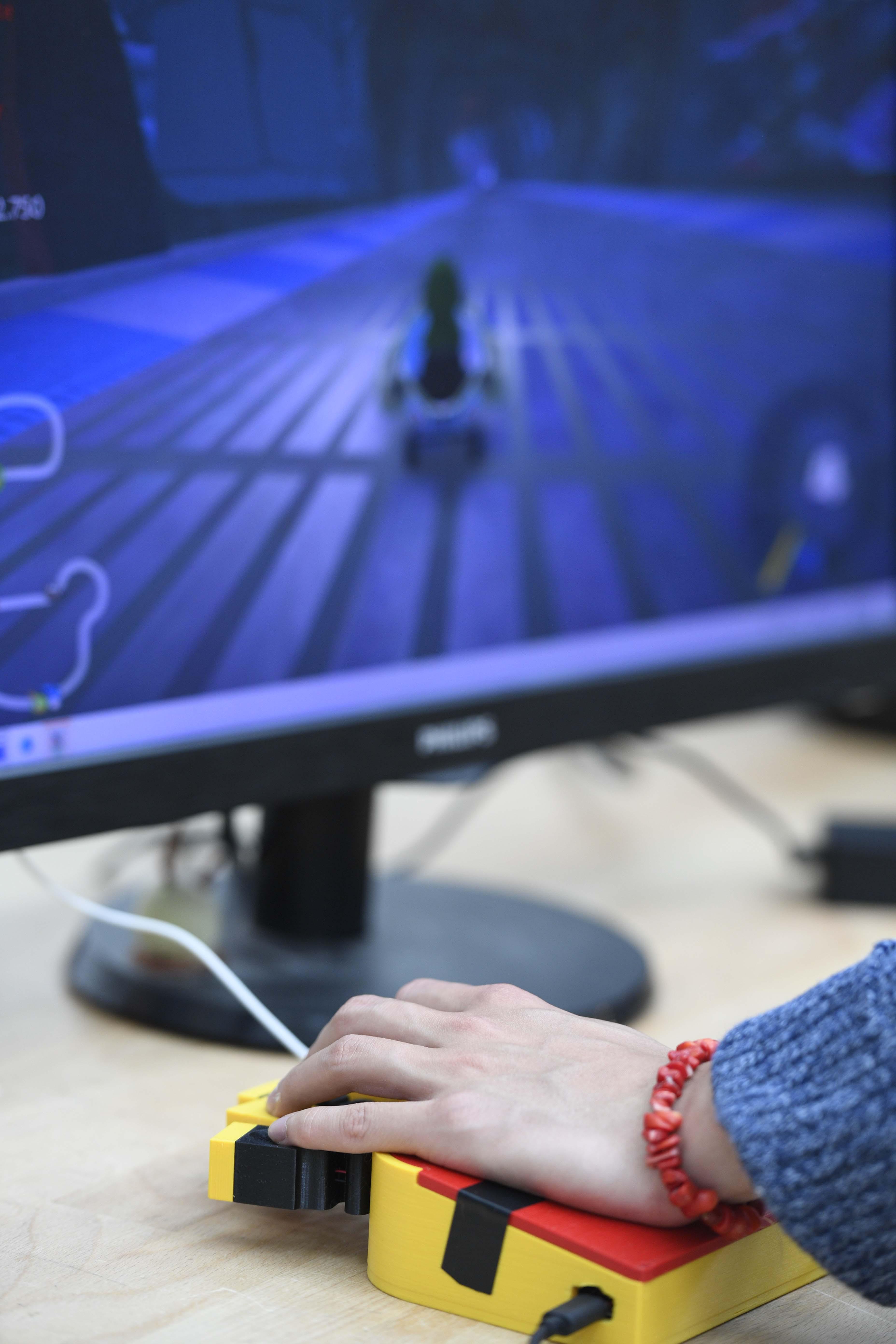
For Barbara de Groot, Master's student in Robotics who helped develop an interactive game called "Cowniverse" for school children with cerebral palsy, "The idea of creating something meaningful for others was a major motivator for us." Insisting on the team effort to build the prototype, de Groot and other team members were motivated to take on the challenge to encourage disabled children to play together despite their motor deficits. To play "Cowniverse", children must learn to collaborate, working together to help the cow get through the circuit of obstacles. The EPFL students discovered through trial and error that large buttons are the way to ensure playful interaction and ease of use for the children.
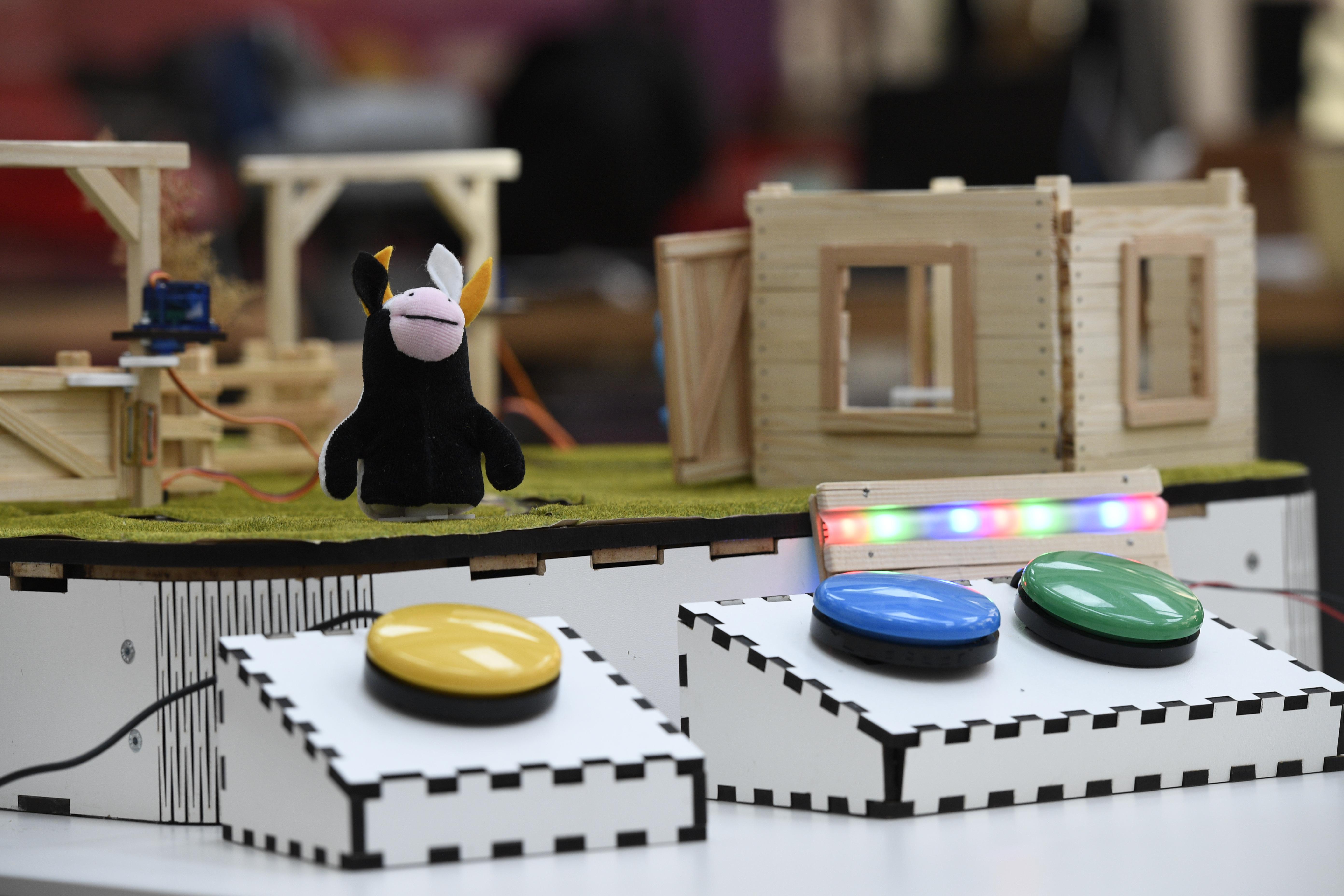
"We are in direct contact with the challenger, improving our prototype with each iteration while incorporating their feedback, and this experience is valuable," says Eliser Josan Romero, also a Neuro-X Master's student who applauds the opportunity to gain hands-on experience and to work towards concrete objectives. Romero and teammates worked on an app called Helpie to simplify the use of public transport in Switzerland. "It's a travel app that helps the mentally challenged go from A to B using public transport, but simplyfing the process. The Swiss train app is difficult to use for those who suffer from cognitive deficits, so the idea is to minimize stress by helping the traveller have more autonomy," explains Romero. In 2023, students developed an app to help the visually challenged find an empty seat in the train.
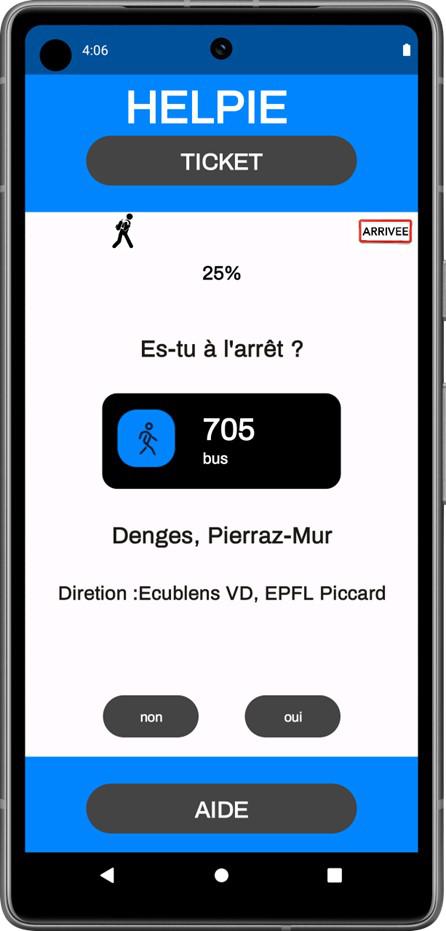
"We modified a soccer table game to encourage children with motor deficits to play together,"explains Armance Nouvel, also a Master's student in Robotics. "We motorized the handles, made the game reconfigurable, and lengthened the handles so that occupational therapists can assist the children play." All of the modifications were developed in tandem with occupational therapists, including specials braces that were added to the handles to help maintain the children's grip to the handles.
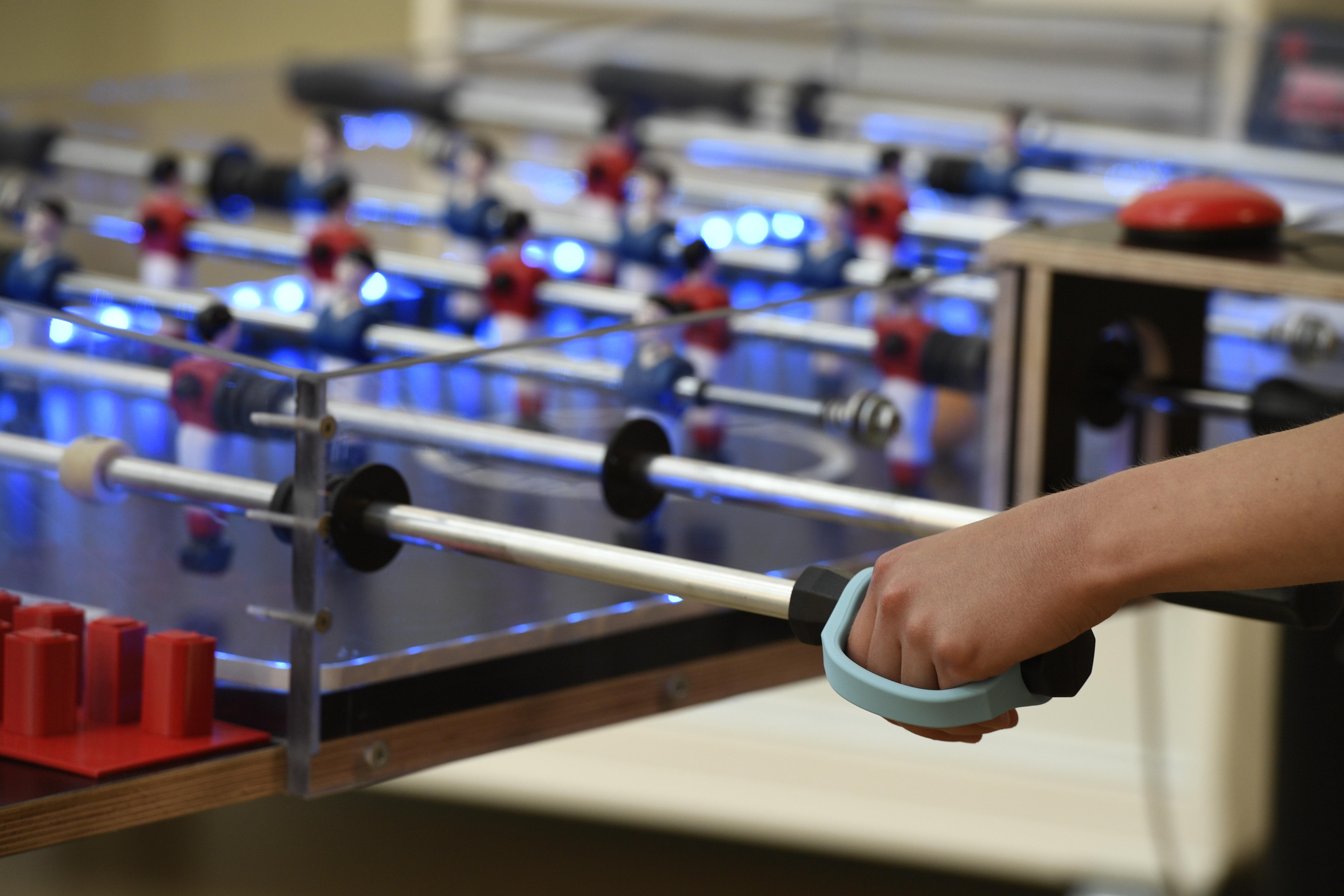
"It is always interesting to work on making objects of everyday life accessible for the user, in our case, a 19 year-old hemiplegic adult," says Alec Parrat, Master's student in Microtechnics. "The user has difficulty using his right hand, and it was enriching to tailor a game console that would allow him to use both of his hands." Parrat and team-members modified the external design of an Xbox by optimizing placement of buttons tailored to the hand of their hemiplegic challenger. The team is planning to make their modified Xbox do-it-yourself strategy available as open-source.
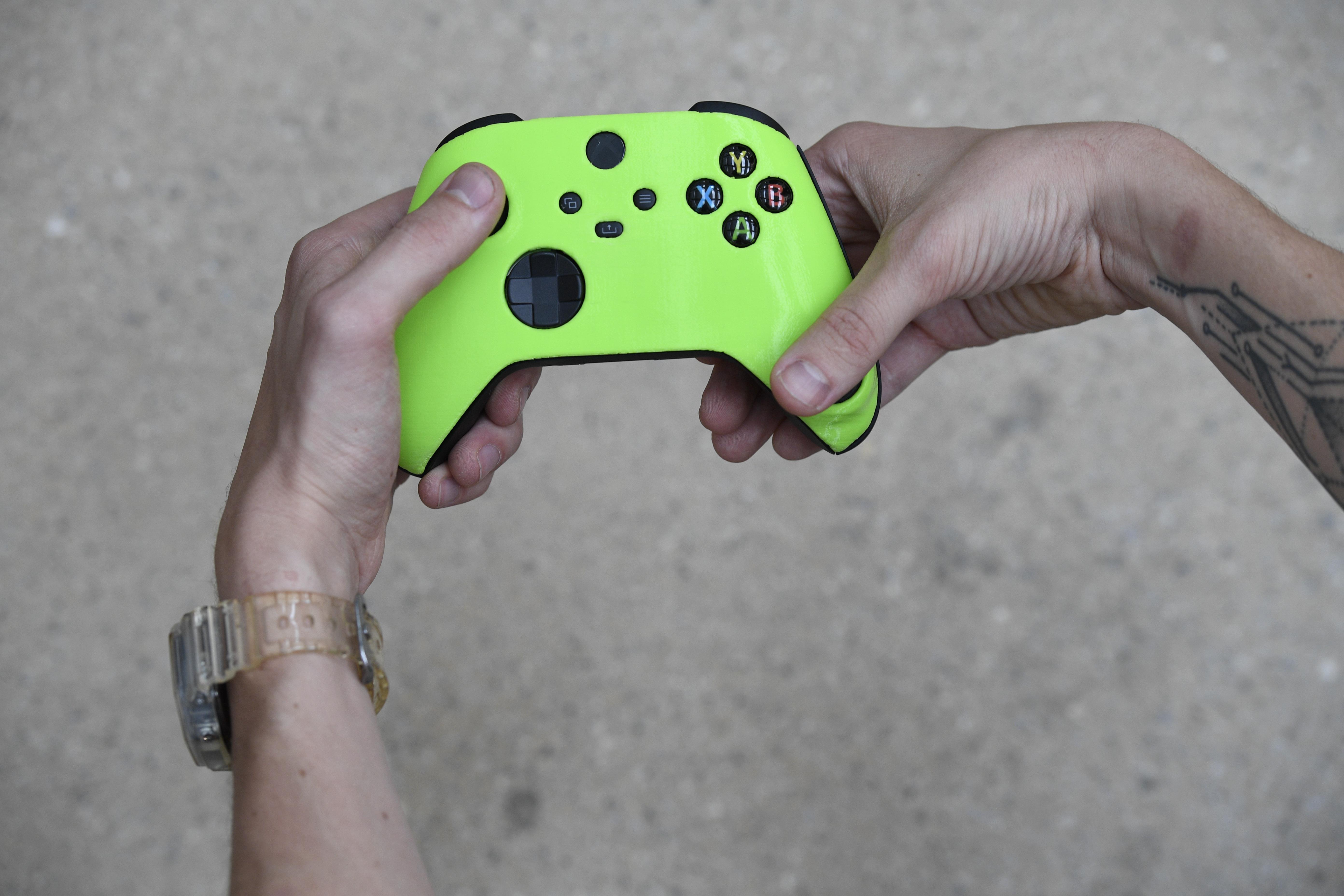
Linkai Dai, who is pursuing a Master's in Life Sciences, says, "We decided to focus on making the scientific community more accessible to the visually impaired." Their project is tailored to help the needs of one particular person, a visually impaired EPFL student, but has the potential to help visually impaired scientists around the world by making the widely used software called LaTeX compatible with screen-readers. The latter translates text into audible speech that the visually impaired can listen to. LaTeX is a typesetting software for writing scientific articles with complex equations. The team developed a plugin that outputs a file that is compatible with screen-readers.
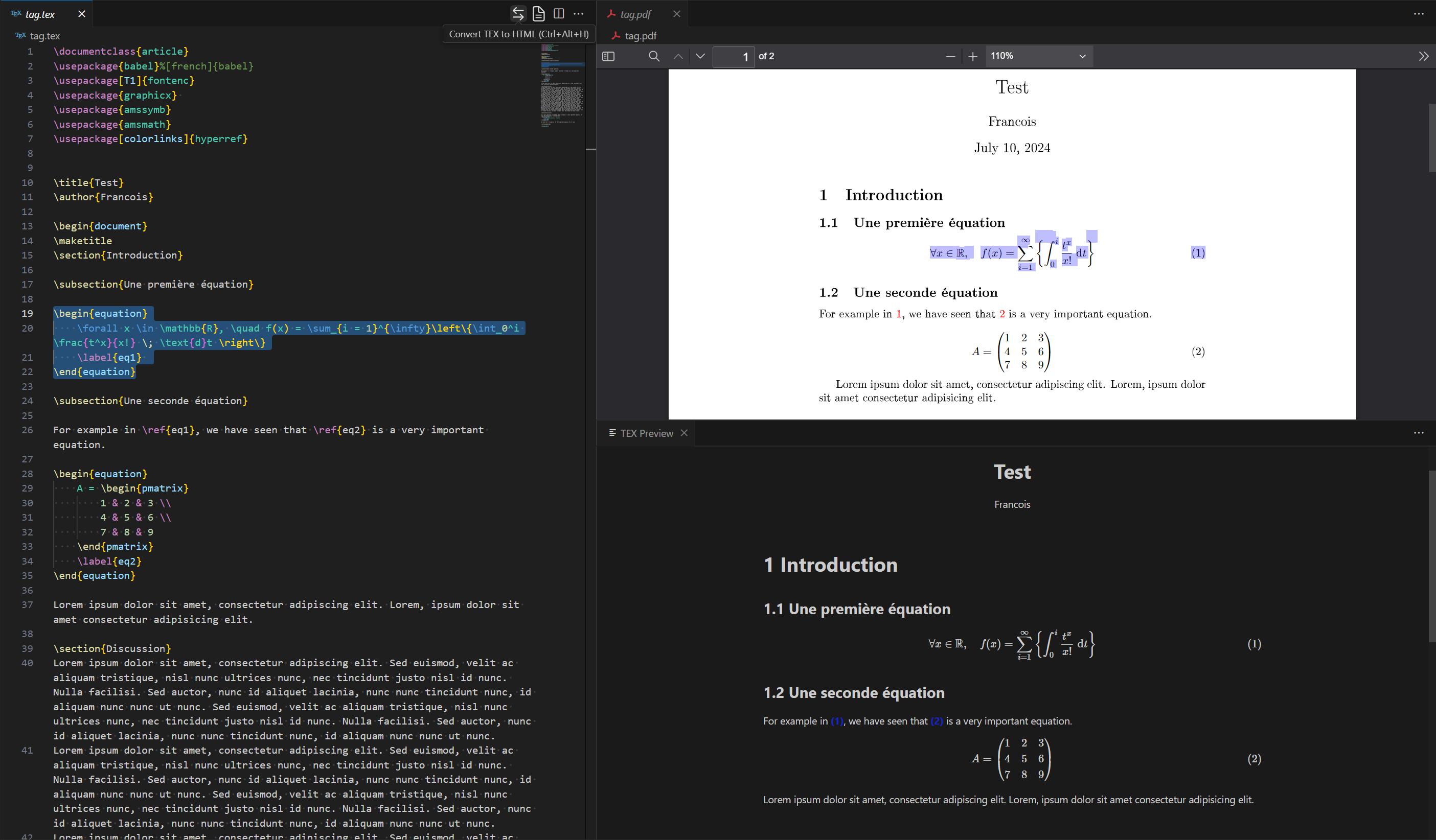
The reality of prototype development
The MAKE challenges are also an opportunity for students to confront themselves with the complexity of interdisicplinarity during their training and working with real-life constraints.
For example, Romero found it challenging to develop a new app in conjunction with proprietary code in a single semester, with the added task of learning a whole new programming language for app design. He says that the team overcame these challenges "with the help of online courses and sleepless nights."
Similarly, Parrat and team were also confronted with the complications of trying to modify a commercial product such as the Xbox. "The biggest challenge we encountered was not having access to the technical specs. We had to adapt our project which forced us to modify the outer shell without touching the original circuits. We managed to produce a professional product thanks to the expertise of the SPOT's assistants and technicians who brought their know-how in soldering, electronics and 3D printing."
Dai adds about development of the LateX plugin, "Our project was focused on modifying code but being at the SPOT facilitated team-work and meetings."






